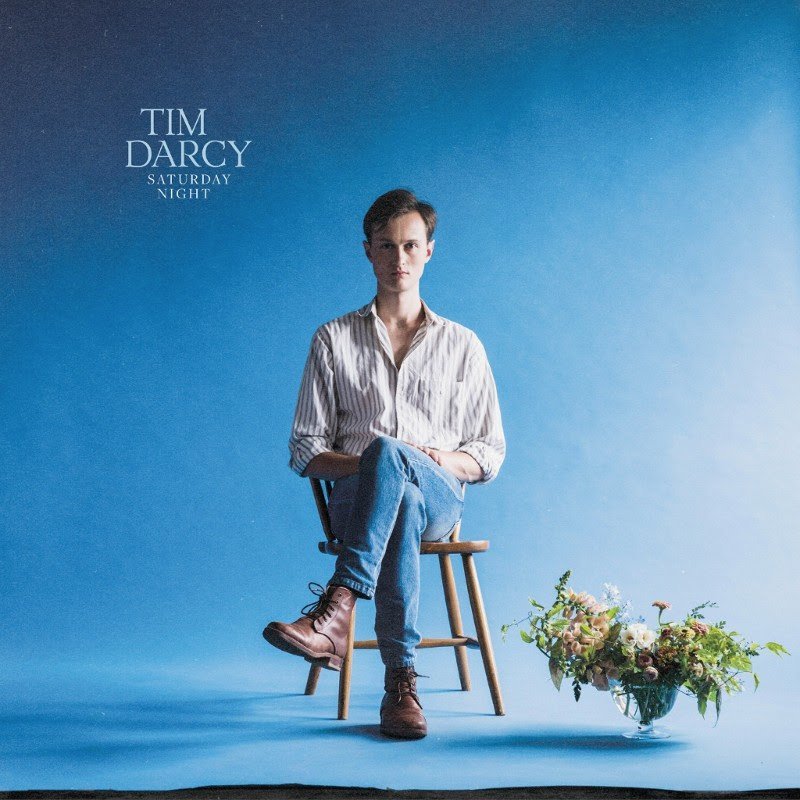“Saturday Night” by Tim Darcy


In Tim Darcy’s first venture as a solo artist, the Canadian musician sheds the swagger, measured aggression and clanging dissonance that defined his previous band, Ought, in favor of more classic pop arrangements and an earnest vocal timbre that lends the record a distinct autobiographical air.
Darcy’s voice is alternately jubilant and somber, accompanied throughout by the infectious chug of a crunchy rhythm guitar. Most of the record’s first half is a straightforward brand of upbeat guitar pop with moments of lush psychedelia provided by an angelic choir and runaway delay feedback. As the album progresses to its midpoint, it veers into more solemn terrain, at times incorporating abrasive bowed guitar, pensive finger-picking and melancholic piano.
Lyrically, Saturday Night is a meditative and confessional journey that chronicles Darcy’s attempts to reconcile apparent optimism with existential anxiety. Throughout the album he poses questions, confidently answering some, while leaving others floating in a cloud of reverb. In the first track, “Tall Glass of Water,” Darcy asks, “If at the end of the river, there is more river, would you dare to swim again?” He answers, “Yes, surely I will stay, and I am not afraid.” Here, he suggests that in life and art there is no stagnant pool in which to rest around the bend, only a never-ending swim, navigating obstacles, punctuated by milestones that, from far enough away, might be confused for endings. This sentiment is optimistic, affirming that the rewards of effort outweigh the risk of exhaustion. However, by the time Darcy arrives at the middle of the album, he’s struggling with the artificiality of identity, questioning the motives behind the performance of art and ego: “Does a bush ever think, ‘Where do I grow to be seen?’”
The album’s form reinforces its lyrical content with ebbs and flows in mood and energy, left compellingly unresolved with a dark and droney instrumental aptly titled “Beyond Me.” After the last bleating guitar gives way to a disorienting emptiness, a ghostly artifact of some forgotten pop song wavers like a dim memory of the sober optimism that started the record. The outlines of the murky refrain never come to full form, leaving the listener with the impression of that bittersweet moment when we’re at our lowest and most confused, but we realize that reconciliation, however far downstream, is possible if we just keep swimming.»
–Christopher Klarer




